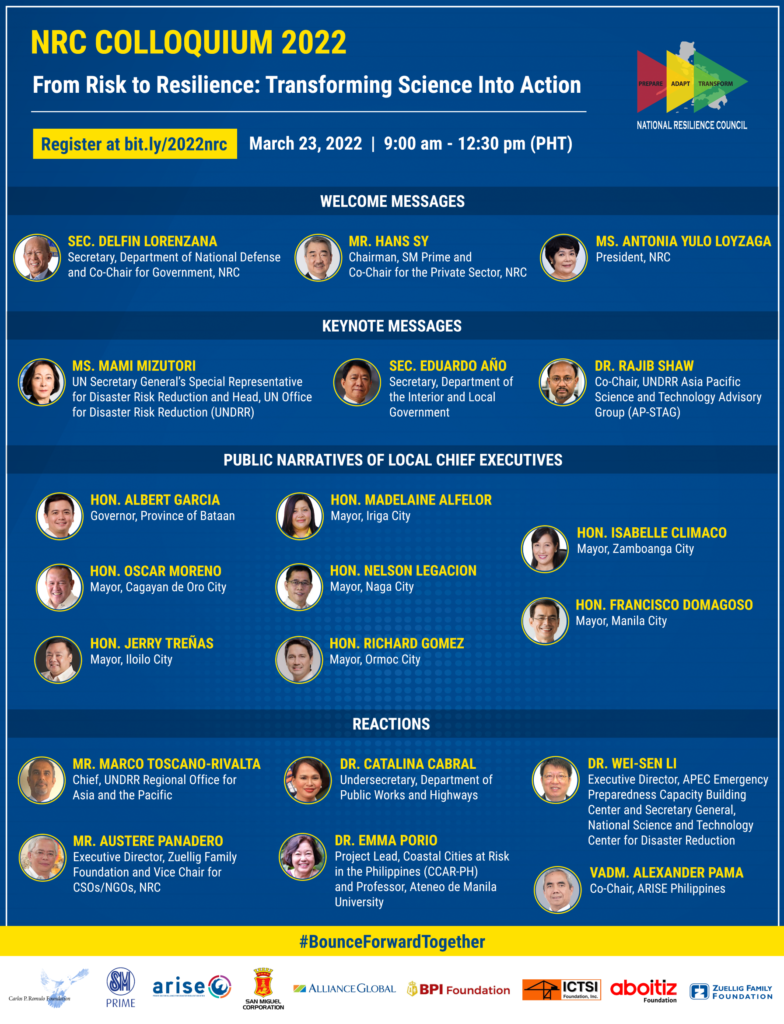
Introduction
The continuing challenges posed by the COVID-19 pandemic, coupled with recurring risks from climate change and extreme weather events, highlight the importance of resilient local government unit (LGU) systems that are able to withstand multiple hazards. The changing socio-political landscape that will be made more pronounced by the national elections in May 2022 is expected to further heighten the complexities of leading and managing the work of resilience building. In this context, new institutional arrangements built upon the foundations of strategic partnerships will be even more critical as the need to transform towards adaptive and inclusive governance and sustainable development can only be achieved through collaborative climate action and disaster risk reduction.
About the Colloquium
The Colloquium marks the transition from Year 2 ADAPT Phase to Year 3 TRANSFORM Phase of our local government partners against a backdrop of continuing, new and emerging challenges to risk governance. The event presents an opportunity to measure an LGU system’s capacity to assess risk and its performance in terms of evidence-informed investments, policies and actions. These serve as important baselines in the face of possible changes in leadership. This stocktaking will likewise enable the NRC, LGU, and its internal and external stakeholders to validate the Resilient LGU Model by learning from individual and collective experiences and insights, thereby enhancing its strategic and operational value.
Local chief executives (LCEs) will present highlights of their resilience journeys in the face of compound hazards and reveal systemic risks. Their progress will be charted by Resilience Roadmaps and Scorecards, and through their public narratives. The lessons learned from these experiences will deliver new insights into systems thinking and participative risk governance, particularly in terms of multi-stakeholder engagement and private-public partnerships. The Colloquium will thus showcase how the PREPARE and ADAPT Phases enabled LGUs to craft strategies and future plans for the co-ownership of risk. They will demonstrate how strategic partnerships with academe facilitate science and technology-informed policy and executive decision-making, and how multi-stakeholder engagement enables the co-creation and implementation of sustained, effective, and innovative investments and actions.
In addition, the Colloquium will serve as a platform for NRC to share its responses to evolving institutional challenges in validating the Resilient LGU model following the PREPARE, ADAPT, and TRANSFORM framework especially in the context of the pandemic. It will highlight the inputs and support NRC provides its partner LGUs in the course of their resilience journey as part of the effort to institutionalize adaptive, responsive, and sustainable multi-stakeholder relationships within resilient LGU systems. As NRC facilitates the transition to the TRANSFORM Phase, the Colloquium will report on progress in terms of the model building work of the Resilient LGU Program while highlighting the capacity and institution building aspect of the partnership, both in the context of the pandemic as well as emerging challenges in program and partnership implementation.